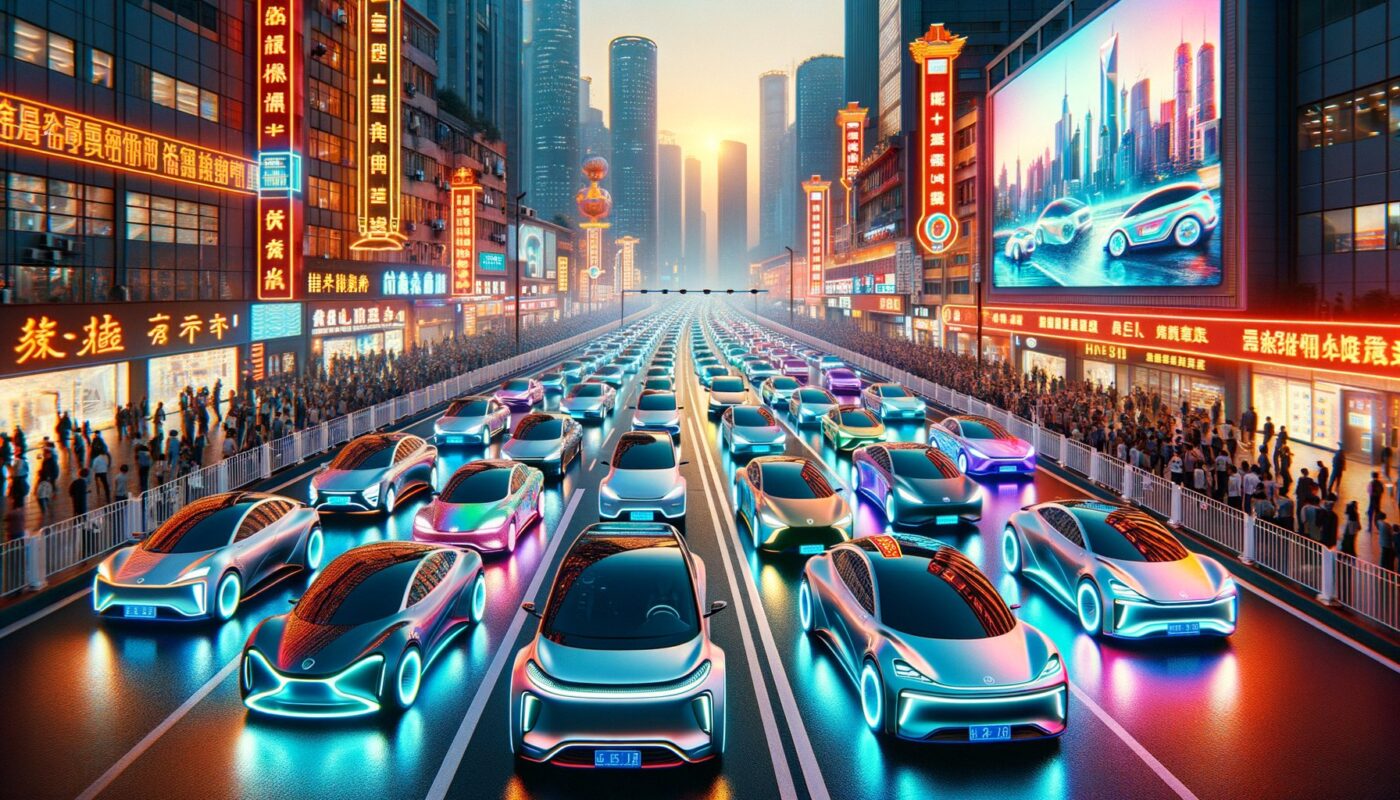China’s automotive market, already the largest globally, has seen a spectacular shift in 2024 with electric vehicle (EV) sales booming and traditional gasoline car sales sinking. This transformation is a testament to China’s ambitious drive towards sustainable mobility and is reverberating across the global auto industry.
Accelerated Growth in the Electric Vehicle Sector
In 2024, China’s market for electric vehicles expanded by over 40%, reflecting significant progress in the adoption of greener technology. According to data from the China Association of Automobile Manufacturers, this rise is part of a broader surge across all vehicle types, marking a 4.5% increase in total vehicle sales, reaching 31.4 million units. Notably, the production growth lagged slightly behind at 3.7%, suggesting high consumer demand is leading market dynamics.
Sales of so-called “new energy vehicles,” which include pure electric, plug-in hybrid, and fuel-cell cars, have particularly shone with exports reaching 1.28 million units—a 6.7% increase from 2023. The growth in plug-in hybrids is noteworthy, as they have captured the attention of consumers who seek extended driving ranges.
Plummeting Demand for Gasoline Cars
While electric vehicles are on the rise, the gasoline-powered vehicle sector is facing a downturn. Sales plummeted by 17% in 2024, with the share of gasoline and diesel car sales dropping to 51% of new vehicle purchases. This decline signals a shift in consumer preferences towards more sustainable options, creating challenges for automakers who have heavily relied on traditional vehicles.
Some foreign car manufacturers like Volkswagen AG and Nissan Motor Corp. are particularly affected, as they have historically depended on strong demand in China to bolster their financial performance. These companies are now scrambling to adapt to the changing landscape by developing new electric models tailored to the Chinese market.
International Implications and Domestic Strategies
China’s rise in EV sales has stirred international concern, particularly in Europe and the United States. In response to this growth and allegations of unfair government subsidies, the U.S. imposed a 100% tariff on Chinese electric cars, while the European Union has also levied new tariffs on EV imports from China.
Domestically, Chinese consumers are responding well to government incentives like trade-in rebates that have certainly contributed to this increased adoption. In December alone, sales of passenger vehicles jumped by 13.6%, supporting the year’s overall increase of 3.1% for passenger car sales, totaling 22.6 million units.
The Future of China’s Automotive Industry
The Chinese government’s strategic push towards electric vehicles aims not only to foster environmental sustainability but also to position China as a leader in future automotive technologies. This transition represents an ongoing effort to dominate the global market, as evidenced by the robust expansion of Chinese EV manufacturers overseas.
Despite potential international trade hurdles, including tariffs raised by the U.S. and EU as detailed in discussions on economic cooperation concerns, China’s commitment to the electric vehicle market stands firm. The country’s automotive industry is in a pivotal moment that could reshape global manufacturing and consumption patterns.
As this transformation progresses, analysts are watching to see if China’s pace-setting moves will spur greater innovation and competitiveness in alternative energy vehicles worldwide. Reflecting on China’s adaptability and growth, it is crucial for manufacturers and policymakers globally to remain agile and responsive to such sweeping industry changes.
Warning : This information is indicative and without guarantee of accuracy. Consult a professional before making any decision.





